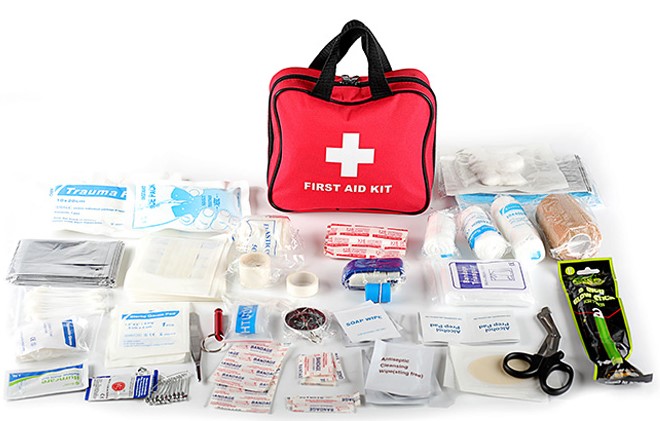By Sande E Oundo
A series of sad events have happened in our country Uganda that makes one wonder whether we are under a bad spell or curse! Fires have destroyed goods worth billions of shillings, along with people’s source of livelihood while gruesome road accidents have killed off entire families and fallen buildings have killed or injured thousands!
Every few days in Uganda, newspapers publish figures of those who have been killed or injured on the roads, fires, water, collapsed buildings and in various other emergency situations which necessitate first aid either directly or indirectly, and many readers are unaware that multiple numbers are involved daily each year. Early and appropriate treatment of such emergencies can help reduce morbidity and mortality.
Given these factors, the question then arises on how to improve access to prehospital trauma care in the Ugandan community, workplaces, homes, schools, on the roadsides, at events and in situations such as drowning, heart attack, heat syncope, seizures, poisoning, and shocks among others especially in areas where no formal emergency medical services exist like in students hostel, schools, workplaces and other private residentials around the country.
Its typical in Uganda that majority of workplaces do not possess emergency equipment like fire extinguishers, smoke detectors, fire assembly points, personal protective gears etc, and even if they are available it’s likely that they are flowers with no formal training done to staffs on how to ably handle such equipment in case of an emergency.
First aid is the first and immediate assistance given to any person with either a minor or serious illness or injury to preserve life, prevent the condition from worsening, or to promote recovery until medical services arrive. The key aims in this case include, preserving life, preventing further harm or promoting recovery of the causality.
This issue is therefore of great significance for several reasons: Most of the deaths that occur due to injuries are actually in communities before reaching health facilities for professional medical care. Therefore, early and appropriate treatment of such emergencies can help reduce morbidity and mortality. In addition, properly administered first aid can mean the difference between life and death, rapid versus prolonged recovery, and temporary versus permanent disability.
Emergencies, whether due to road traffic crashes, violence, illness or other causes, affect not only the immediate victim, but also his or her family and members of the community and such emergencies exact large societal and economic toll in terms of the direct costs of medical care and the indirect economic costs of premature death and disability and are often attributed to the limited first aid service given to the victims at the site.
With all these life-threatening injuries being reported almost daily, we have not grasped the importance of preserving the few who have survived these deaths, because of the limited training in first-aid! We must realize that most often the people who first arrive at an accident scene are not trained medical professionals, but rather good Samaritans who have no training on how to respond to emergencies. Therefore, there is a great need to scale up training in the basics of first-aid and emergency response.
It is beyond disturbing to watch news and see injured survivors, as they are pulled from the wreckage, manhandled in such ways that only worsen their injuries and leave little room for surviving these injuries even in the hospital. Therefore, implementing correct first aid measures is vital for victims in emergency cases and helps to improve the overall outcome of the first aid process in emergency situations.
While everyone can benefit from first aid knowledge and training, it is also of greater benefit to those working or living with individuals who require ongoing special attention or treatment such as children, persons with physical or mental disabilities, persons with chronic illness, persons with disorders such as epilepsy, the elderly, persons involved in recreational activities such as swimming, basketball, football and so on.
Therefore, to ensure the safety and health of Ugandans then let’s embrace the following:
- Ensure first aid training lessons at workplaces and schools.
- Equip workplaces /schools with first aid tools and equipment
- Workplaces especially factories and industries should gazette space to set up a first aid/ an onsite clinic.
- Gazette fire assembly points at work places.
- Equip traveling vehicles with first aid equipment.
- Empower and train drivers, riders and security personnel in first aid skills.
- Equip hospitals especially those on highways with emergency supplies and drugs for prompt response and treatment.
- Operationalise the emergency toll-free line to ensure compliance and communication in case of an emergency.
In conclusion, Every minute counts in a crisis. When trained, people can provide basic first aid to handle minor injuries and preserve life until professional medical help arrives. By taking action through effective first aid, we can save countless lives.
Sande Elison Oundo is a holistic health practitioner and President of Vigilant Living, A counselling and coaching company
If you would like your article/opinion to be published on Uganda’s most authoritative news platform, send your submission on: [email protected]. You can also follow DailyExpress on WhatsApp and on Twitter (X) for realtime updates.



